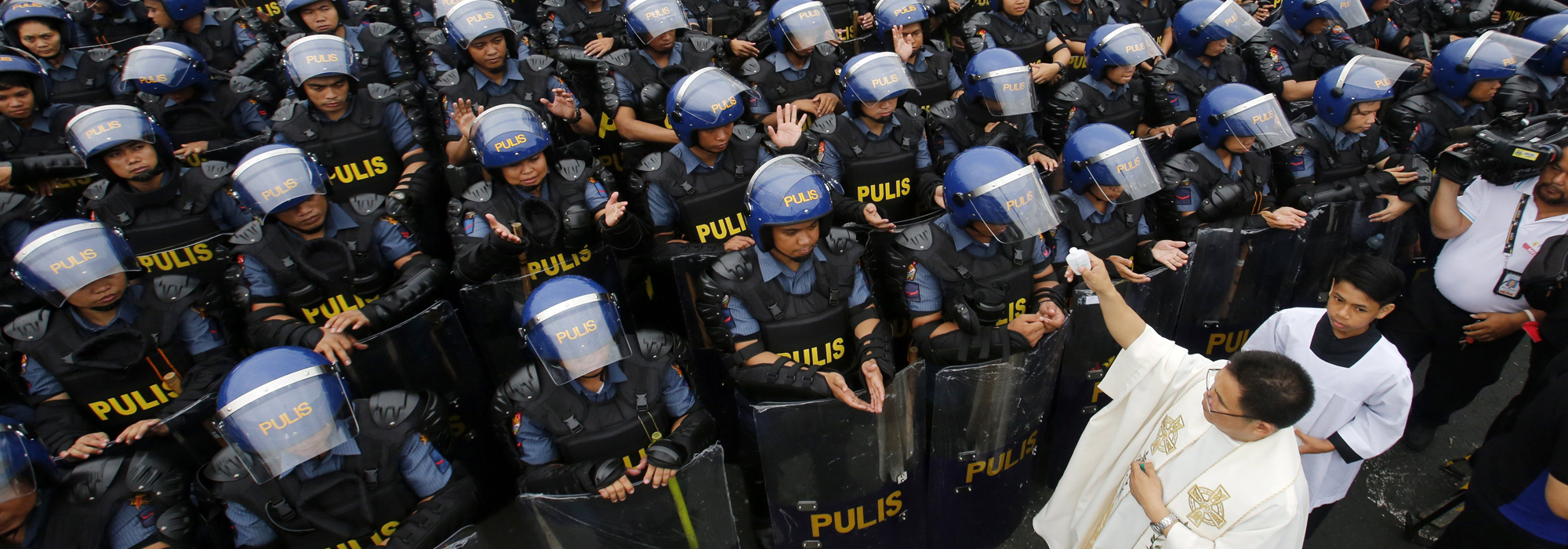
In mid-November Prime Minister Justin Trudeau attended the East Asia Summit, the premier security forum in the region. This was a first for a sitting Canadian prime minister and a momentous step for Canada. The summit, held in Manila this year, is by far the most relevant regional security organization that Canada is not a member of — yet.
This regional organization, led by the Association of Southeast Asian Nations (ASEAN), has 18 members, including China, the United States, India, Japan and Australia, that account for over 50 percent of the world’s population and GDP. Of all the ASEAN Dialogue Partners — countries that have a closer, formalized relationship with ASEAN — Canada is the only Asia-Pacific one that is not a member of the East Asia Summit. Yet the region has rarely been more critical to Canada, in both economic and security terms.
In the face of a US pullback and uncertainty around NAFTA, Canada needs to diversify its trading relationships. Already, consultations are ongoing on a potential free trade agreement between Canada and China. The ASEAN region, with 600 million people and a rapidly growing middle class, is one of the most promising markets in the world, as the Asia Pacific Foundation of Canada has reported. ASEAN countries are already Canada’s sixth-largest trading partner, and our bilateral merchandise trade with the region reached $21.6 billion last year. Moreover, a free trade agreement with the group is a necessary precondition for Canada’s participation in the broader Regional Comprehensive Economic Partnership. In September, Canada launched exploratory discussions for a free trade agreement with ASEAN.
Canada is a stakeholder in the security of the ASEAN region and should be a member of its key security forum.
The region is also at the centre of key security concerns, from maritime security to migration and tensions on the Korean peninsula, which leaders discuss at the East Asia Summit every year. Canada benefits from security dividends in the region and equally suffers from regional security uncertainties. It is a stakeholder in the security of the region and should be a member of its key security forum.
Canada, as a stable, reasonable stakeholder interested in shared prosperity and security, has much to bring to a region rattled by an unpredictable, retreating US and not yet comfortable with an assertive China. With divisive rhetoric rising around the world, and in a region of immense diversity, Canada’s call for inclusion resonates as an apt, pacifying message.
Canada had never been invited to attend the discussions at the leader level until this year. This conjuncture is particularly special for Canada and ASEAN. This year is the 50th anniversary of ASEAN and the 40th anniversary of Canada-ASEAN relations. It is also a propitious year because the Philippines — this year’s ASEAN chair — also happens to be Canada’s coordinating country within ASEAN, which means it is responsible for coordinating Canada’s relations with ASEAN. The Philippines is the country that has supported Canada’s East Asia Summit membership the most publicly (and it did so well before the current Philippine government came in). Canada’s coordinating country changes every three years and the ASEAN chair rotates every year, so the alignment of roles in 2017 presented a unique opening for Canada.
Canada’s relationship with ASEAN has ebbed and flowed over the past decades, with periods of stronger involvement but more often with a defined focus (security or bilateral trade, for instance). Still, it is slowly but surely building a broader presence. Canada has a diplomatic presence in each ASEAN country as well as an ambassador to ASEAN itself since last year, even if some say Canadian foreign policy still falls short of a truly strategic vision in the region.
Canada has to continue to build a long-term, genuine commitment to the region to warrant a formal invitation to be a member of the East Asia Summit next year, when Singapore will be the ASEAN chair. This would truly be a great achievement for Canada on the international stage.
A Filipino priest blesses government security forces during deployment for the Association of South East Asian Nations Summit and Related Meetings in Manila, Philippines, on 5 November 2017. The Philippines hosted the 31st ASEAN Summit and Related Meetings from 10 to 14 November, during which ASEAN leaders met their counterparts from Australia, Canada, China, the European Union, India, Japan, New Zealand, Russia, South Korea and the United States. EPA/FRANCIS R. MALASIG.
Do you have something to say about the article you just read? Be part of the Policy Options discussion, and send in your own submission. Here is a link on how to do it. | Souhaitez-vous réagir à cet article ? Joignez-vous aux débats d’Options politiques et soumettez-nous votre texte en suivant ces directives.









